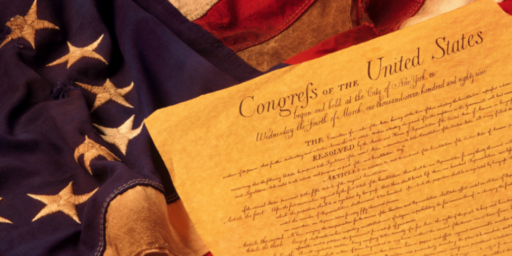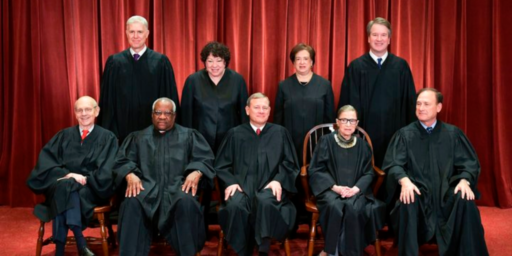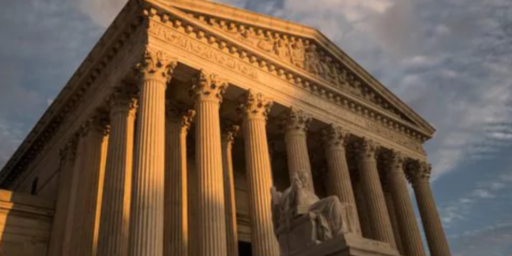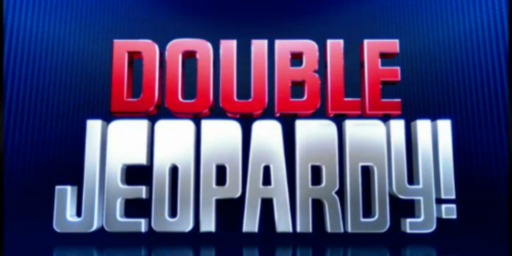Indian Tribes and Double Jeopardy
UPI: Court looks at double jeopardy, arrests
The Supreme Court of the United States Monday continued its effort to refine how police and the public interact.
In a case out of North Dakota, a court majority said the federal government may charge a suspect with essentially the same crime as that charged by an Indian tribe, when the tribe is acting as a sovereign authority, without violating double jeopardy.
The Constitution bars double jeopardy — punishing someone twice for the same offense. But the Constitution does not bar prosecutions by “separate sovereigns.”
The ruling came in the case of an Indian member of a tribe; it would not affect any of the tens of thousands of non-Indian visitors to tribal casinos each year.
Also Monday, in a case out of Washington state, the Supreme Court said it would hear argument next term on whether an arrest is “reasonable” if the reason an officer stopped someone is not closely related to the eventual crime charged.
Both cases are part of a stream considered by the Supreme Court over the last decade. Many of the decisions in the cases have been minor, but collectively they define how much power police have over the public.
While I disagree with this ruling, it’s consistent with a long string of precedent. Indeed, it makes more sense with an Indian tribe, which is theoretically a sovereign entity, than it does with one of the states, which had only partial sovereignty under the original conception of federalism and virtually none since the late 1930s.
Update: NYT has more: 1 Punch, 2 Prosecutions, No Double Jeopardy, Justices Rule [RSS] Love the headline. Any guesses as to where the writer comes down on this one?






About that hed: Remember that a copy editor, not the reporter, writes the headline.
–|PW|–
—